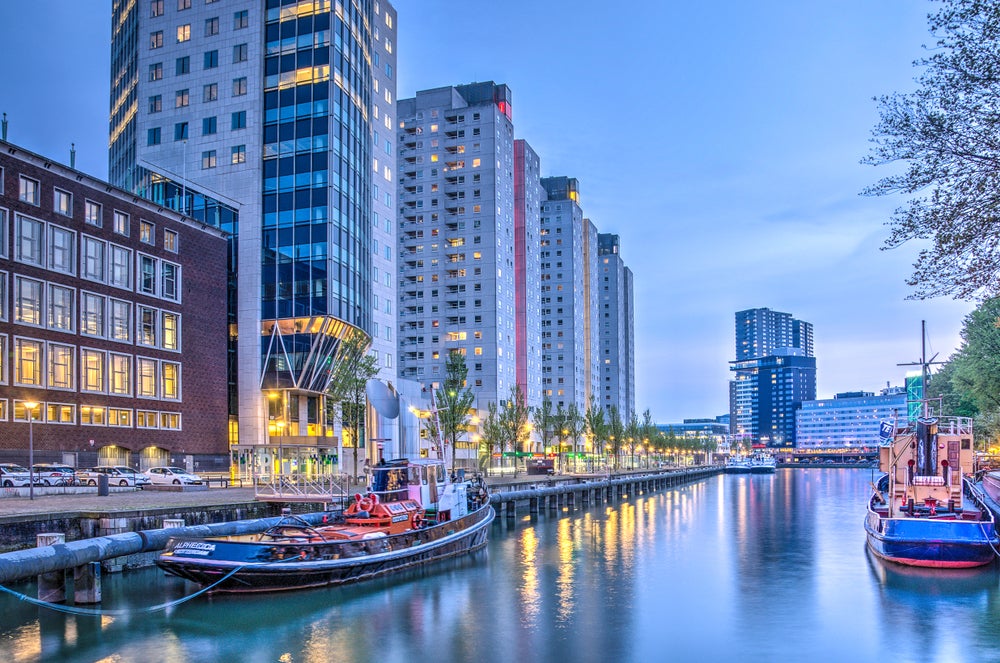
The three largest banks in the Netherlands are ABN Amro, ING and Rabobank. They have been the majority of the sector for a significant amount of time. However, smaller challengers are starting to compete.
ABN Amro, ING and Rabobank dominate the market. You only have to look at the statistics.

Access deeper industry intelligence
Experience unmatched clarity with a single platform that combines unique data, AI, and human expertise.
According to GlobalData, in terms of cards issued, ING had the most with 9.6 million in circulation in 2018 with a transaction value of €56.9bn ($64.9bn).
Following that, Rabobank had 8.3 million cards in circulation and ABN Amro had 6.2 million with transaction values of €50.1bn and €37.1bn respectively.
Considering the population of the Netherlands is 17.2 million and cards per inhabitant is 1.9, this is a large share.
ING had a net result of €4.7bn in 2018 and increased its customer base to 38.4 million. 12.5 million of those consider ING to be their primary bank.

US Tariffs are shifting - will you react or anticipate?
Don’t let policy changes catch you off guard. Stay proactive with real-time data and expert analysis.
By GlobalDataRabobank made €3bn in net profit over 2018 and lowered operating expenses to €7.4bn from over €8bn in 2017.
It also holds 101 local Rabobanks, 409 offices in the Netherlands and employs over 41,000 full time employees. This is to serve 8.3 million customers worldwide, 7.3 million of them located in the Netherlands.
ABN Amro has 18,830 full time employees worldwide, with 15,557 of them in the Netherlands.
It made a profit of €2.3bn in 2018, slightly down from the €2.8bn in 2017. In addition, it employs 4,447 people within retail banking in the Netherlands.
However, the largest banks in the Netherlands should watch out for a number of competitors.
Bunq
2018 had been a big hit for Dutch headquartered digital challenger brand Bunq. The self-styled ‘bank of the free’ successfully launched in Spain, Italy and France and plans further international expansion in 2019.
Bunq is not just another digital start-up bank with an attractive debit card. Nor is it just a neobank with the aim of removing barriers in traditional banking and growing its international footprint.
Since its establishment in the Netherlands in 2012 – it obtained a Dutch banking licence in 2015 – bunq has always actively chosen a different approach to traditional banking.
And now it is energetically flagging up its ethical credentials with the launch of bunq Freedom of Choice.
Building on the TransferWise API, bunq was able to launch its international transfers service in just 7 weeks.
At launch, bunq users can send money to 15 currencies, with more currencies to follow.
Triodos
Is ethical banking a feasible option? It has certainly been tried before. The most prominent example in the UK is the Co-operative Bank. It operated an ethical policy which, by and large, excluded the provision of any banking services to businesses which took part in certain business activities or sectors.
One firm hoping to have a go is Triodos Bank.
Founded in 1980 in the Netherlands, the bank has been in the UK for 22 years, but has decided to move into the current account space in an ethical way.
According to research from Triodos, two-thirds of people want to know where banks are lending their money and three-quarters of people are unaware of where it ends up. So it will invest deposits into sustainable lending.
De Volksbank
“The people’s bank” has 0.1 million cards in circulation with a transaction value of €0.2bn. Formerly known as SNS Bank, this firm has a prominent place in the market and could easily gain market share.
The largest banks in the Netherlands need to start looking over their shoulder. With consumers taking on digital services, such as IDEAL, players like Bunq could easily catch the eye of the customer. Soon, we may not be talking about just three large banks.







